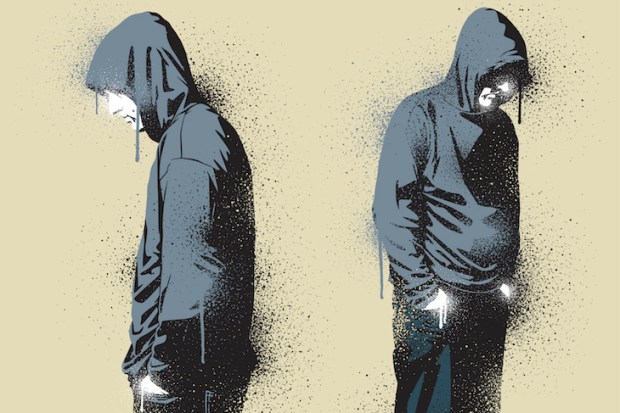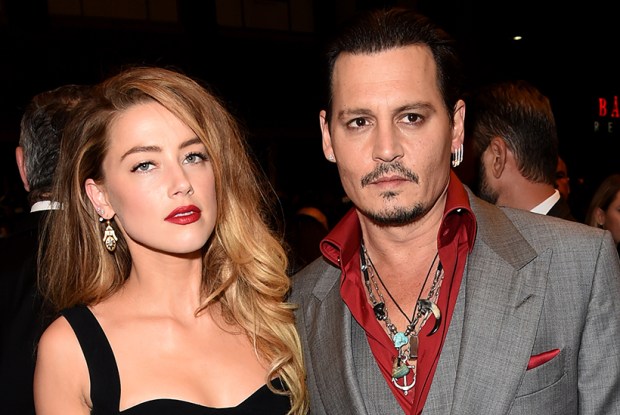One fine morning early this year I had tea with Stephen Greenhalgh, Boris’s pleasant if perspiring deputy mayor for policing, and discussed the two great crime mysteries of the 21st century.
First: the weird fall in crime. For the past 15 years, all manner of crimes have been on the wane, even violent ones: carjacking, vandalism, burglary, murder — but why? Mr Greenhalgh was admirably quick to credit the Met, but given that it’s a global phenomenon, stretching across Europe and America, that seems unlikely. The truth is probably prosaic: better security and cheaper goods mean young thugs can’t be fished. It’s almost disappointing how apathetic evil turns out to be.
The second mystery follows from the first, and this is the one that really stumps the cops: if we’re all so much safer these days, then why do we still hate them? Year after year, as crime falls further, so does faith in Plod. Whichever way you phrase the questions on a satisfaction survey, the results remain grim. Was it Stephen Lawrence? Plebgate? Can’t we see how lucky we are? What’s wrong with us?
Well I have a theory, born that very morning as I left nice Mr Greenhalgh and walked straight into a scene that seemed set up by fate just to explain.
Outside the entrance to New Scotland Yard, beside that pointlessly revolving sign, a young man in the dusty get-up of a builder was standing, shouting at the door: ‘You just don’t care. You just don’t fucking care. No wonder everybody hates you!’ Then he stalked off, and because I’m a busybody I followed him — to the corner of Victoria Street, where an old lady was sitting on the pavement with a bleeding head wound, surrounded by passers-by.
What’s up? The young man turned, his eyes hard-boiled with rage: ‘I’m just a scaffolder,’ he said, ‘they’re the police, and they won’t do a fucking thing.’
What had happened, he said, was that the woman had slipped and hit her head hard on the curb just in front of him. He’d made sure she was conscious, called an ambulance, then raced over to New Scotland Yard to ask for help: bandages, maybe a medic. But all the armed guard on the door would say was: you can’t come in here. Presuming the guard to be some sort of robotic gatekeeper, the scaffolder pushed past him into reception and asked again for their medical officer. He got the same response: I’ll call you an ambulance, said the receptionist, but you can’t be in here. ‘I’ve called a fucking ambulance,’ said the scaffolder. ‘I need bandages.’ Then he was strong-armed back on to the street.
Just as he finished his story and began to calm down, a lady officer, a WPC, appeared in front of us. ‘What’s going on?’ The scaffolder let rip: ‘I went to your building over there, and they won’t even give me a bandage! You people…’. After a few minutes of this, the WPC turned tail. She walked towards the safety of police HQ and, as she reached the door of New Scotland Yard, I was hard on her heels, so I heard the word she had with the fat and frightened guard: ‘Why did you even let him in?’ she said wearily, and with disgust.
And here I think is the answer to the second mystery, in those seven words said with such contempt: ‘Why did you even let him in?’ An old lady had cracked her skull, a young man had tried to help, and the police? They were just freaked out that a member of the public had made it into their reception area.
The answer’s also in the order of events. Yes, the scaffolder was cross. He summed up most people’s feelings nicely with that rant — but it wasn’t anger he felt so much as betrayal. His first instinct was to turn to the cops for help, as we’re all programmed to do. It was only when and because they refused that he became upset. So: what if it’s not that the public mistrust the police, so much as that the police have come to dislike us?
Let’s call it institutional misanthropy, I think we pick it up subliminally every day, here in London at least. It’s in the way cops overreact to minor transgressions; in the way they don’t shave, walk in pairs never meeting a person’s eye, and retreat given half a chance back to the car. When demos are afoot in Westminster, I come across them in side streets, gearing up: a phalanx of fatties in bulletproof vests behaving as if they were to fight Sparta, not chivvy students down the road.
If for once we turned the tables and polled the police on their attitudes towards the public, it’d make for brutal reading, I bet. I’ve heard it said that the police refer to us these days as ‘toffs or nutters’, and I expect binge-drinkers and foreigners would come in for a drubbing too. I got talking one evening to an officer who told me that the worst thing about his job, even worse than the girls in vodka comas on a Thursday night, was dealing with the Roma on the Edgware Road. ‘The women squirt us with breast milk,’ he said with a soul-deep shudder. ‘We shouldn’t have to deal with this. It’s not what I signed up for.’
It’s not, he’s right, so pity the boys in blue. They joined with dreams of chasing Burglar Bill; returning swag bags to grateful citizens. Now, like so many of us, they find they’ve been outgunned by machines: alarms, locks, bars, CCTV — they’ve dealt with the traditional robber, leaving your traditional cop facing new, distasteful crimes. There’s the ones they can’t solve, like global fraud online; then, worse, the ones they think should be social service work: violent madmen off their meds; wife-beating inside the homes where they feel edgy and at risk of lawsuits.
But this fall in crime isn’t going away. It’s right across the West and it’ll only spread as the world gets richer, so inevitably, reluctantly, it’s the police who’ll have to change — and I think we should begin with honesty.
Their masters do the cops no favours by claiming the fall in crime is all due to them. I know it’s near impossible for a politician not to seize credit where it’s there to grab, but perhaps that’s where the rot begins. Those coppers who believe the hype will resent the public for ingratitude; those who don’t will feel grubby and confused.
So let’s come clean, admit policing’s changed; recruit for those best suited to chase crime into the shadows of the internet and inside homes. Once they can do their jobs, the police might be able to look us in the eye, serve the public again.
Got something to add? Join the discussion and comment below.
Get 10 issues for just $10
Subscribe to The Spectator Australia today for the next 10 magazine issues, plus full online access, for just $10.
You might disagree with half of it, but you’ll enjoy reading all of it. Try your first month for free, then just $2 a week for the remainder of your first year.














Comments
Don't miss out
Join the conversation with other Spectator Australia readers. Subscribe to leave a comment.
SUBSCRIBEAlready a subscriber? Log in